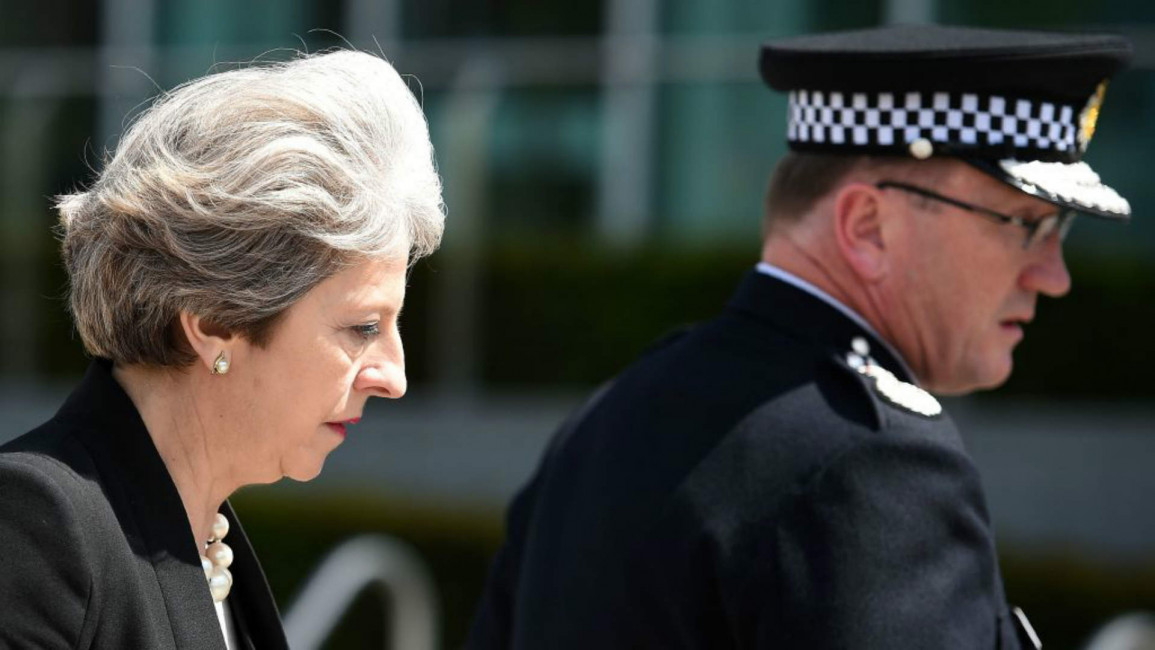
After Manchester: It's time to rethink Prevent
The political debate on tackling the problem of violent extremism in the UK, focused as it is on the Prevent Strategy, needs to broaden if it is to prevent scenes as appalling as this week's from being repeated.
Eye witness accounts of the atrocity in Manchester brought home the macabre reality of an extremist attack against innocent people, of young lives ended by one man wielding violent power against the defenceless.
The level of depravity displayed by the individual or group who planned and carried out the attack is impossible to comprehend for the vast majority of people, and knee jerk reactions are unwise.
While campaigning for the UK's upcoming general election was temporarily suspended, any attempts to use the mass murder of children for political gain would surely mark a new low in British politics.
A narrow approach
Incidences of violent extremism in the UK have been increasing: There were the 2005 attacks in London, a city which suffered further attacks in 2007 and again this year, as well as the Glasgow airport attack in 2007 and now the Manchester Arena atrocity. In each case, ordinary people were the victims.
Prime Minister Theresa May has chosen to tackle the issue with the continuation of a consciously narrow counter extremism programme called the Prevent Strategy, which forms part of the wider Contest strategy.
Under Prevent, the government has considered certain factors as possible precursors to extremism including vulnerability to radicalisation, the holding of ideologies that advocate political violence and the holding of distorted religious beliefs, while other factors, such as the UK's foreign and economic policies, have not been up for discussion.
 |
Other factors, such as the UK's foreign and economic policies, have not been up for discussion. |  |
The result has been a decontextualised and often rancorous debate, and a Conservative victory in the polls in June would cause further anxiety for communities across the UK concerned about the threat of racial profiling.
It does not take forensic analysis to identify foreign policy, domestic economic austerity, and the housing crisis as some of the potential drivers of the dissatisfaction that can lead individuals to commit acts of violent extremism. All the attacks in Britain have occurred since the illegal invasion of Iraq in 2003, and the threat has accelerated since the onset of the Syrian civil war in 2011.
So while analyses of the causes of extremist violence require study of each individual's motives, the wider context in which the violence was carried out is also key, and cannot be ignored.
Government approach
As Home Secretary, Theresa May oversaw the implementation of Prevent, which provides training to public sector workers on how to spot signs of vulnerability to extremism, works with "at risk" individuals, and provides a counter-narrative to hateful and violent ideology.
| Read more: Prevent profiteers: Companies exploit climate of fear | |
Aware of the scope for criticism, Prevent is keen to have respected Muslim community figures on its side. Promotion and dissemination of key messages are a mainstay at their events and training courses. But the Prevent message is fixed, and there is little space for manoeuvre around it.
One community leader in London told me that when they raised foreign policy concerns with Prevent officers from the Home Office, they were met with the message "'your point is noted'. But there is never a suggestion of anything changing. There is never any acknowledgement of Britain's foreign policy mistakes."
Criticisms
The Muslim Council of Britain (MCB) is critical of Prevent, as it says the strategy only coordinates with groups willing to bite their tongue over UK foreign policy. The MCB has claimed that it will set up a parallel programme carrying a simpler message: All violence is wrong. But only the government has adequate resources to tackle the very real problem of British people becoming involved in extremist violence.
 |
participation in the Prevent Strategy is often pragmatic rather than heartfelt |  |
The community leader told me that participation in the Prevent Strategy is often pragmatic rather than heartfelt: "Prevent is like a budget overhead, there's a sense that Prevent is where the money is to deliver community programmes, so let's go with that".
Community groups receive help with their websites and social media and some funding for projects, and in return Prevent has access to the grassroots and can engage with them on getting the Prevent agenda out to communities.
In some areas Prevent is seen as benevolent, whereas in others it is seen as a powerful and hostile monitoring network keeping tabs on Muslims, harassing and stigmatising people and removing children from schools unnecessarily.
Prevent has listed "empathy" with the Palestinian cause, criticism of foreign policy in the Middle East and criticism of Prevent itself as issues that needed to be "risk-assessed and managed" and that "may be regarded as extremist but are not illegal". The scope for abuse of this power is clearly very broad.
 |
Prevent has listed 'empathy' with the Palestinian cause, criticism of foreign policy in the Middle East and criticism of Prevent itself as issues that needed to be 'risk-assessed and managed' |  |
While Prevent officers are at pains to point out that they also take on far-right extremism, they do not acknowledge that they are operating in a political climate of Islamophobia, in which the vilification of Muslims by politicians and the media has been used as a tool for gain by Le Pen, Trump, May, Netanyahu and others.
The reality of Theresa May being in ideological lock step with President Donald Trump - with his bombs, travel bans and racist rhetoric - is just the tip of the iceberg, but nowhere does it feature on the agenda at Prevent meetings.
Last month, Kenyan lawyer Maina Kiai, the UN Special Rapporteur on the rights to freedom of peaceful assembly and of association, said that Prevent risks "promoting extremism, rather than countering it". And last year the UK's independent terrorism legislation watchdog gave similar warnings.
Labour
Former Conservative cabinet minister Sayeeda Warsi has criticised Prevent and its narrow focus on ideology, and Labour leader Jeremy Corbyn recently referred to it as "often counter-productive".
In 2015 Corbyn was stinging in his criticism of Prevent: "The Prevent agenda which singles out one community, singles out the idea that teachers have to become the reporting agents for others rather than a trusted profession who is trying to support and help young people, actually creates a worse, more dangerous atmosphere for the future.
 |
It is time for a sober-minded review of complaints about Prevent's efficacy |  |
"Surely it is about inclusion, it is about saying to young people you do have a stake in this society, you do have an equal opportunity and equal chance in this society and we want you to take that rather than being driven into something that is quite appalling and quite dreadful."
In the unlikely event of a Labour victory in the general election, Prevent would face an overhaul. The Labour manifesto pledges that "Labour will review the Prevent programme with a view to assessing both its effectiveness and its potential to alienate minority communities. In doing so, we will address the government's failure to take any effective new measures against a growing problem of extreme or violent radicalisation".
Home Secretary Amber Rudd's assertion that the government needed to "sell it to communities" is telling. Indeed, the government does "sell it", at the expense of a serious, in-depth debate that questions the UK's foreign policy, alliances and arms sales. Just as May's claims of "strong and stable" leadership have recently come under scrutiny, it is time for a sober-minded review of complaints about Prevent's efficacy.
Doubling down
Theresa May would likely use an election victory in June to double down on Prevent. As well as failing to address many of the issues head on, Prevent has the potential to be used to subdue communities and groups who have genuine grievances.
The housing crisis and austerity have further impoverished and trapped the poor, but the policies leading to these realities are nowhere to be seen on the Prevent agenda.
The consequence of a narrow focus on immediate causes is a missed opportunity to really confront the growing trend of violent extremism in Europe, but so far, the government has been unwilling to broaden its approach to tackling the deeper issues.
Tom Charles is a London-based writer, editor and literary agent. He previously worked in the UK parliament, including as a lobbyist for Palestinian rights. He has contributed to Jadaliyya and the Journal of Palestinian Refugee Studies.
Follow him on Twitter: @tomhcharles
Opinions expressed in this article remain those of the author and do not necessarily represent those of The New Arab, its editorial board or staff.




